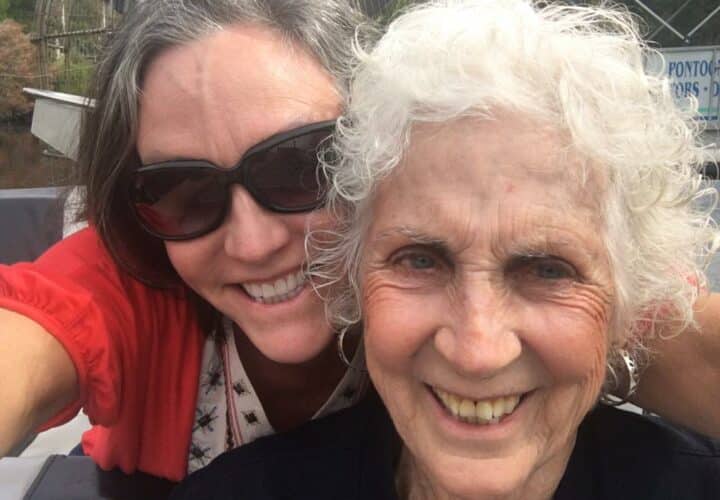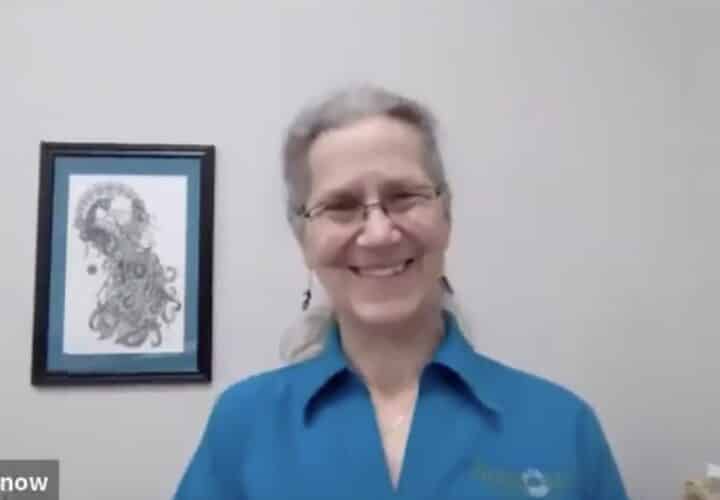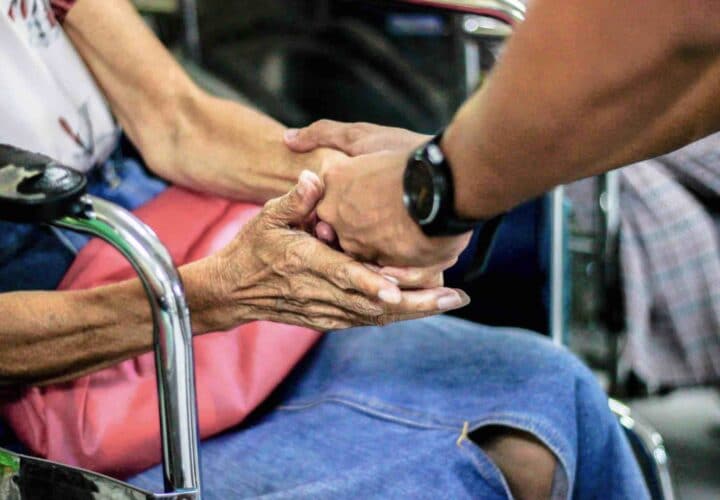In Being Patient's essay series, dementia caregivers share wisdom on awkward conversations, everyday challenges, talking to a teen about a parent’s diagnosis, and more.
Being a caregiver to someone living with dementia is a role that many people take on with little or no prior experience with the disease. Often times caregivers must figure things out as they go; learning from their own mistakes and constantly innovating new ways of helping their loved one navigate life living with dementia.
VOICES, Being Patient’s series of essays written by caregivers, has become an unofficial guidebook of sorts to dementia caregiving, helping to provide caregivers with solace, or to feel less alone on a journey that can feel uncharted. Find five of our recent favorites below.
“When Mom’s Alzheimer’s Made Her Obsessed About Sex”
When author Christine Mungai’s mother was diagnosed with Alzheimer’s disease, she didn’t expect the topic of sex — something they never discussed prior — to become a topic her mother suddenly discussed frequently with abandon.
It may seem odd that such a symptom could present itself in older adults, but hypersexuality is a lesser known behavioral system of Alzheimer’s. It can occur along with other cognitive changes caused by amyloid-plaque build up in the brain.
Over time, Christine learned to stop worrying about her mother’s words after she realized it was potentially creating invisible barriers for her mother to socialize, which she writes “freed her and myself.” She writes about how centering humor allowed her to make that change.
“Battling the Bath With Alzheimer’s”
As dementia progresses, behavioral changes including sensory stimulation might occur for your loved one. Loud sounds and crowded environments can be overwhelming even if they weren’t previously. Some people might even find bathing, usually a calming experience, unenjoyable due to sensory challenges they experience.
Many people living with Alzheimer’s also lose track of time, and any concern for personal hygiene can be discarded due to lack of perception of how much time has passed since their last bath.
For author and Certified Public Accountant Ann Margaret Johns, the battle of the bath was an all-consuming task until she found ways to put her mom at ease in the water. A space heater, non-slip shower mat and unending patience were all essential for Johns.
“Telling My 15-Year-Old Son His Mom Has Parkinson’s”
When Paul Kidwell’s wife was diagnosed with Parkinson’s disease over 17 years ago, his son was only 15 years old. Like Paul and his wife, many families struggle with how to explain Alzheimer’s and other neurodegenerative diseases to young children and worry about the emotional toll watching a loved one live with a disease can cause.
Paul writes of his son, “At 15, he had first dates, first dances, a first kiss, and his first heartbreak to look forward to, along with achievements in and out of the classroom to celebrate.”
When having the conversation with his son, Paul emphasized that his wife would never be without their love, even as her identity and abilities were changing.
“I told him that if his love was enough, Mom would never have gotten sick; I told him that if our love was all it took, she would be cured today.”
“Mondays With Mom”
Even as dementia progresses to its final stages, many people living with dementia still have incredible long-term memory despite their short-term memory being significantly impacted.
Terri Moore made the difficult decision to move her mother into a long-term care facility and was looking for ways to document time spent with her mother. She began asking her mother question cards, which gave way to her mother recalling many long-term memories Terri previously had never heard about.
Terri’s video series “Mondays with Mom” was born when her mother animatedly answers the question cards. Terri’s videos have resonated widely across social media.
Dementia and Communication With Caregiving Expert Teepa Snow
“The Complexities of Dementia Caregiving”
John-Paul Ashton details his experience caring for his father who lives with dementia and offers other caregivers strategies for support and resilience. Ashton’s mother is disabled and often cares for her husband, which can cause her stress and frustration.
While supporting his mom in their shared caregiving journey, Ashton has learned the importance of building a support network through counseling and support groups, learning about financial assistance resources that may be available to help alleviate financial pressure, and providing carers with training about dementia.
Dementia Care Expert Teepa Snow on Setting Yourself Up for Caregiving Success
Share your wisdom
VOICES is Being Patient’s series of essays written by people who are or have been a caregiver to a loved one living with Alzheimer’s disease or another form of dementia.
Caregivers are often an overlooked group in the medical and scientific journey to understand and treat Alzheimer’s. Through VOICES we hope to change that. If you are interested in sharing your dementia care story, please reach out to lauren@beingpatient.com for details on how to contribute.





